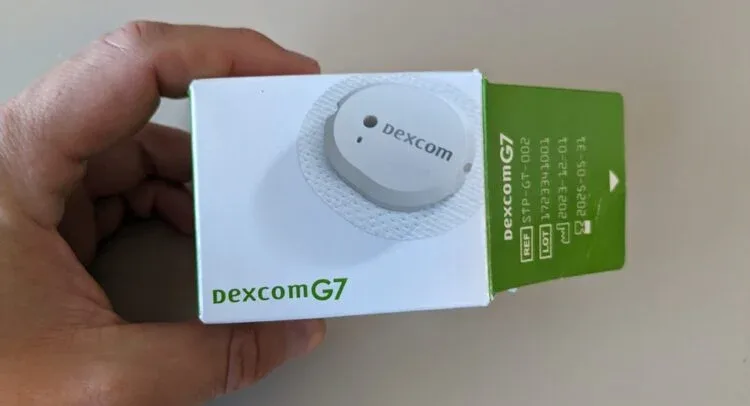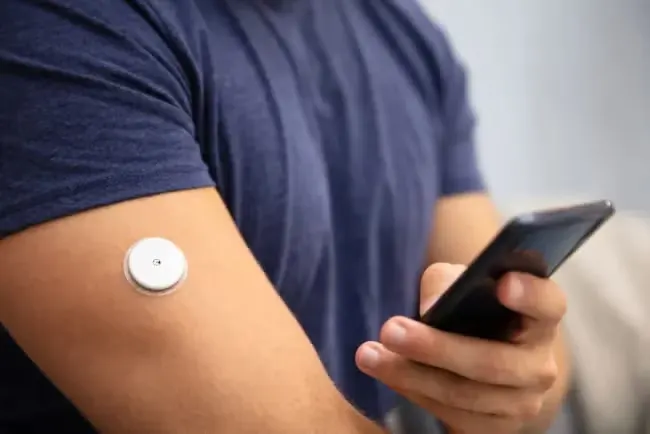Dexcom G7 Lawsuit, Class Action Over Failed Alerts and FDA Recalls Rocks Diabetes Device Market
The Dexcom G7 lawsuit centers on allegations that Dexcom marketed its flagship glucose monitor as “the most accurate” CGM despite defective alert systems and sensors that failed before their advertised 10-day wear period. Filed in October 2025 in the U.S. District Court for the Central District of California (Case No. 8:25-cv-02333), the class action follows an FDA warning letter and two Class I recalls affecting over 600,000 devices.
Lead plaintiff Kelly Grisoli, whose child uses the device for Type 1 diabetes management, alleges she “repeatedly experienced failed alerts and dangerously inaccurate glucose readings” compared to fingerstick tests. The complaint claims these defects placed users at risk of severe hypoglycemia, hyperglycemia, seizure, coma, or death.
What Are the Legal Claims Against Dexcom?
The lawsuit alleges violations of California’s Consumer Legal Remedies Act, Unfair Competition Law, and False Advertising Law, seeking damages and class certification for all U.S. purchasers of the G7.
Plaintiffs claim Dexcom knew of the defects but continued marketing the G7 while “touting its reliability and safety while minimizing and/or concealing the risks.” They paid a “substantial premium” for sensors based on alleged misrepresentations, receiving products that failed to perform as promised.
Core allegations include:
- False advertising about device accuracy and reliability
- Failure to disclose known safety risks and defects
- Breach of express and implied warranties
- Unjust enrichment from selling defective products
The complaint cites FDA adverse event reports from 2023 to early 2025 documenting device failures, premature sensor shutdowns, and missed critical alerts.
Related article: Courts Rule Against Glock, Machine Gun “Switch” Lawsuits Proceed as States Win Major Legal Victories

What Are the Alleged Product Issues?
Grisoli purchased the G7 for her child in early 2024. The devices never lasted their advertised 10-day wear period, sometimes failing after just two days, forcing her to buy frequent replacements. Dexcom allegedly threatened not to replace the sensors, claiming she requested too many within one month.
Specific problems alleged:
- Alert failures: Missed or delayed alarms for dangerous glucose levels
- Inaccurate readings: Significantly different results compared to fingerstick tests
- Premature failure: Sensors shutting down before 10-day period
- “Sensor Failed” errors: Frequent technical malfunctions
The lawsuit references FDA recalls in June and September 2025—both classified as Class I, the most serious type. In June, the FDA notified customers of a receiver issue where a speaker could lose contact with the printed circuit board. In September, Dexcom warned about a software design error causing missed “Sensor Failed” alerts when transmitters encounter hardware/firmware failures.
What Did the FDA Find?
In March 2025, the FDA issued a formal warning letter citing multiple serious violations in G6 and G7 manufacturing. The agency found devices were “adulterated” due to quality system failures and unauthorized device modifications increasing the risk of inaccurate readings.
According to the FDA, Dexcom made unauthorized changes to a critical sensor component without required approval. Dexcom’s own clinical studies showed sensors with the new component had “significantly greater variability” than approved sensors.
A separate class action alleges the unapproved materials change caused G6 and G7 sensors to have “considerably greater variability” than readings from sensors made with the previous FDA-approved material, causing higher risks for consumers who used the newer sensors.
The FDA stated the larger inaccuracies in modified sensors create higher risks for users relying on readings to dose insulin or make diabetes treatment decisions.
Who Is Affected by This Lawsuit?
The proposed class action covers consumers who purchased Dexcom G7 CGMs throughout the United States. You can file a lawsuit even if you were not physically injured if you purchased a Dexcom G7 device or sensor during the January to November 2024 timeframe.
Class eligibility may include individuals who:
- Purchased G7 devices or sensors made with unauthorized materials
- Experienced failed or delayed glucose alerts
- Received inaccurate glucose readings compared to manual tests
- Required frequent early sensor replacements
- Suffered medical emergencies due to missed alerts
- Were not properly warned about device defects
If you own a recalled G6 or G7 receiver and suffered harm due to missed alerts, you may have a particularly strong claim given the FDA’s Class I designation and documented injury pattern.
What Is Dexcom’s Response?
Dexcom spokesperson Nadia Conard told MedTech Dive the company “qualified a second source for one of its raw materials, developed since 2021, to ensure an uninterrupted supply to customers,” adding that “extensive testing” showed the material met specifications. She maintained Dexcom “disclosed the change responsibly and transparently” and said the company was “surprised” by the FDA’s letter.
Dexcom has not issued a public statement specifically addressing the Grisoli class action lawsuit. The company faces multiple lawsuits over the G7 and G6 devices.

What Could This Mean for Users?
Over 600,000 devices are affected worldwide—602,445 G7 units globally and 36,800+ G6 units. Multiple 2025 recalls follow previous Class I recalls in 2019 for similar G6 receiver alarm failures, demonstrating a recurring pattern of safety defects.
Potential outcomes:
- Financial compensation: Recovery for device purchases, medical expenses, and out-of-pocket costs
- Product replacement: Access to properly functioning devices
- Medical monitoring: Coverage for increased medical surveillance
- Policy changes: Improved safety protocols and quality control
The lawsuit seeks unspecified damages and class certification, potentially allowing thousands of affected users to participate in a collective recovery.
How Do I Know If I’m Part of the Class?
The 23-page class action looks to cover all United States residents, including those of the District of Columbia, Puerto Rico and the U.S. Virgin Islands, who within the applicable statute of limitations period bought a Dexcom G6 and/or G7 continuous glucose monitoring device and/or sensor that was made using sensor materials different from those approved by the FDA.
To determine your eligibility:
- Check if you purchased G7 devices between January and November 2024
- Review your device’s performance history for premature failures or alert issues
- Compare your glucose readings to fingerstick tests for accuracy
- Verify if your device is included in the June or September 2025 recalls
Check your Dexcom CGM device: Visit dexcom.com/checkreceiver or call 1-844-478-1600 for more information about recalls.
Are There Similar Pending Lawsuits Against Dexcom?
Multiple consumer class actions have been filed against Dexcom over its G7 and G6 sensors—one filed by Kelly Grisoli in California alleging defective alerts, and another focused on materials changes uncovered in the FDA warning letter.
Additionally, Dexcom faced a separate securities fraud class action from investors who purchased stock between January 8 and July 25, 2024, alleging misrepresentations about sales performance and revenue expectations. That case remains ongoing in the Southern District of California.
The pattern of recurring litigation demonstrates systemic concerns about Dexcom’s quality control, manufacturing processes, and disclosure practices.
What Legal Precedents Could This Case Establish?
FDA warning letters, especially the March 2025 Dexcom letter, may support personal injury claims by demonstrating lapses in required notification, approval processes, and manufacturing standards.
This case could establish important precedents for:
- Medical device accountability: Manufacturer liability for unapproved design changes
- Consumer protection: Standards for accuracy claims in life-critical devices
- Regulatory compliance: Consequences for bypassing FDA premarket approval
- Class action scope: Expansion of consumer harm beyond physical injury
The litigation may influence how medical device companies disclose modifications, conduct quality control, and market device performance to diabetes patients who depend on these technologies for life-threatening condition management.
Frequently Asked Questions
Q: Can I join the Dexcom G7 lawsuit if my device just didn’t last the full 10 days?
Yes. The complaint specifically mentions sensors that failed before the advertised 10-day wear period, sometimes after just two days, forcing users to buy frequent replacements. You don’t need to prove physical injury to participate in the consumer fraud claims.
Q: What if I didn’t experience missed alerts but had inaccurate readings?
The lawsuit covers sensors with “considerably greater variability” in glucose readings compared to FDA-approved materials. If your G7 readings were significantly different from fingerstick tests during the relevant timeframe, you may qualify for the class.
Q: How long do I have to join the lawsuit?
Class action statutes of limitations vary by jurisdiction, but the proposed class covers purchases “within the applicable statute of limitations period.” Contact a class action attorney promptly to preserve your rights, as deadlines may be approaching.
Q: Will Dexcom face FDA penalties beyond the warning letter?
The FDA found Dexcom’s devices were “adulterated” due to quality system failures and unauthorized modifications. The agency could impose additional enforcement actions including fines, consent decrees, or manufacturing restrictions if violations continue.
Q: Can I still file an individual lawsuit if I suffered serious injuries?
Users who experienced seizures, loss of consciousness, or hospitalization due to missed glucose alerts may have particularly strong claims. Individuals who suffered hypoglycemic or hyperglycemic emergencies when receivers failed to sound alerts may pursue separate personal injury lawsuits.
Q: What damages are available in the Dexcom G7 lawsuit?
The lawsuit seeks damages for consumers who paid more than they would have had they known about safety, reliability, and accuracy issues, or who would not have purchased G7 CGMs at all if informed of the safety risks. Damages may include purchase price, medical expenses, replacement costs, and economic losses.
Q: Is Dexcom planning to release a fixed version?
Dexcom is developing a next-generation 15-day-wear sensor approved by the FDA in 2025 promising “best-in-class accuracy.” However, this does not address liability for defects in current G7 devices or compensate affected users for past harm.
What Should You Do Next?
If you purchased a Dexcom G7 device during 2024 and experienced alert failures, inaccurate readings, or premature sensor failures:
- Document your experience: Save receipts, device logs, glucose readings, and medical records
- Verify recall status: Check if your device is affected by visiting dexcom.com/checkreceiver
- Consult an attorney: Contact a consumer protection attorney who handles identity theft cases or product liability lawyer to evaluate your claim
- Preserve evidence: Keep all defective sensors, replacement correspondence, and communication with Dexcom
- Monitor class certification: Follow case developments at the Central District of California court
The case, Grisoli v. Dexcom, Inc., et al., was filed in the U.S. District Court for the Central District of California (Case No. 8:25-cv-02333). The plaintiff is seeking class certification to allow similarly situated consumers to participate in the recovery.
For information about joining the class action or filing an individual claim, consult with experienced consumer law attorneys in Houston or medical device litigation specialists.
Disclaimer: This information is for educational purposes only and does not constitute legal advice. If you believe you have been harmed by a Dexcom G7 device, consult with a qualified attorney to discuss your specific situation and legal options.
Last Updated: October 27, 2025
About the Author

Sarah Klein, JD, is a licensed attorney and legal content strategist with over 12 years of experience across civil, criminal, family, and regulatory law. At All About Lawyer, she covers a wide range of legal topics — from high-profile lawsuits and courtroom stories to state traffic laws and everyday legal questions — all with a focus on accuracy, clarity, and public understanding.
Her writing blends real legal insight with plain-English explanations, helping readers stay informed and legally aware.
Read more about Sarah
